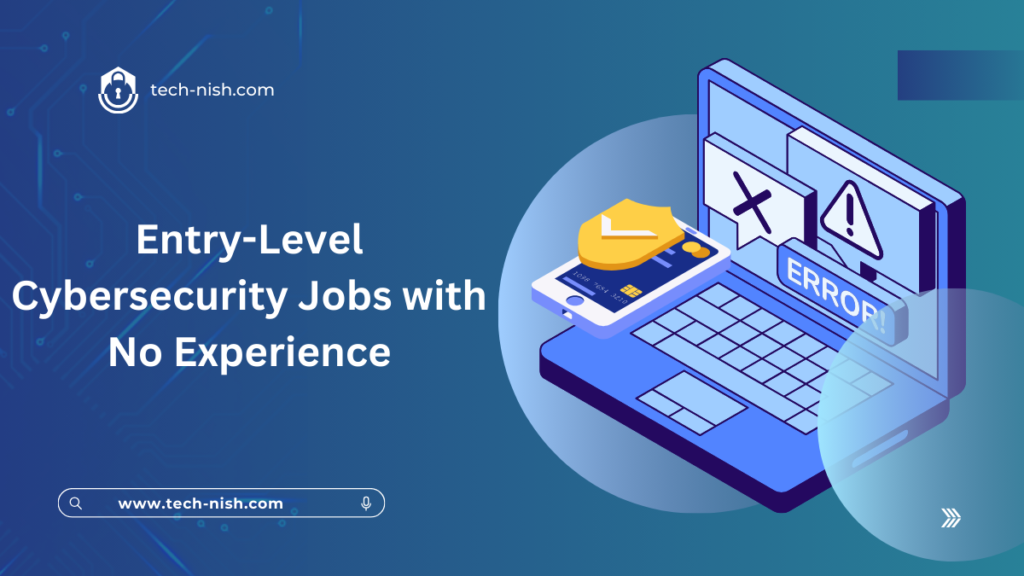Entry-Level Cybersecurity Jobs with No Experience
The field of cybersecurity is rapidly expanding, with an increasing demand for skilled professionals to protect sensitive information from cyber threats. For those who are interested in entering this dynamic field but lack experience, there are still numerous opportunities to get started. This guide explores entry-level cybersecurity jobs, providing insights on how to land your first role without prior experience.
Understanding Entry-Level Cybersecurity Roles
Entry-level cybersecurity jobs are designed for individuals who are new to the field. These positions typically involve tasks that support the cybersecurity team, such as monitoring security systems, responding to incidents, and maintaining security tools. Some common entry-level roles include:
- Security Analyst: Security analysts monitor an organization’s networks for security breaches and investigate incidents when they occur.
- IT Support Specialist: IT support specialists help maintain and troubleshoot an organization’s IT infrastructure, ensuring it remains secure.
- Network Administrator: Network administrators manage and maintain the organization’s computer networks, which includes implementing security measures to protect data.
- Junior Penetration Tester: Junior penetration testers, also known as ethical hackers, attempt to break into systems to identify vulnerabilities before malicious hackers can exploit them.
Table of Contents
Skills and Certifications
While prior experience may not be necessary, having a strong foundation in relevant skills and certifications can significantly boost your chances of landing an entry-level job in cybersecurity. Some key skills include:
- Basic Networking Knowledge: Understanding how networks operate and how data travels through them is crucial for any cybersecurity role.
- Operating Systems: Familiarity with various operating systems, especially Linux and Windows, is essential.
- Security Fundamentals: Basic knowledge of cybersecurity principles, such as encryption, firewalls, and antivirus software.
Earning certifications can also demonstrate your commitment and knowledge in the field. Some valuable entry-level certifications include:
- CompTIA Security+: This certification covers essential security concepts and is widely recognized in the industry.
- Certified Ethical Hacker (CEH): The CEH certification focuses on penetration testing and ethical hacking.
- Cisco Certified CyberOps Associate: This certification is designed for those interested in security operations.
How to Gain Experience
Even without formal job experience, there are several ways to build your cybersecurity skills and resume:
- Online Courses and Training: Platforms like Coursera, Udemy, and Cybrary offer cybersecurity courses that can help you gain practical knowledge.
- Home Labs: Setting up a home lab is a great way to practice cybersecurity skills in a controlled environment.
- Internships: Internships can provide hands-on experience and exposure to real-world cybersecurity challenges.
- Volunteering: Offering your skills to non-profits or small businesses can help you gain experience while contributing to a good cause.
Where to Find Jobs
Finding the right job is crucial for starting your cybersecurity career. Here are some platforms where you can search for entry-level cybersecurity positions:
- Indeed: Indeed Cybersecurity Jobs – A comprehensive job board with numerous cybersecurity listings.
- LinkedIn: LinkedIn Cybersecurity Jobs – Leverage your professional network and apply for jobs directly on LinkedIn.
- Glassdoor: Glassdoor Cybersecurity Jobs – Provides company reviews alongside job listings, giving you insights into potential employers.
- CyberSecJobs: CyberSecJobs – A job board specifically focused on cybersecurity roles.
- InfoSec Jobs: InfoSec Jobs – Another specialized platform for information security job listings.
Networking and Job Search Tips
Networking is crucial in the cybersecurity industry. Attend conferences, join online forums, and connect with professionals on LinkedIn to expand your network. Here are some additional tips for your job search:
- Tailor Your Resume: Highlight relevant skills, certifications, and any hands-on projects you’ve completed.
- Leverage Job Boards: Use job boards that specialize in cybersecurity positions, such as CyberSecJobs and InfoSec Jobs.
- Prepare for Interviews: Be ready to discuss your skills, certifications, and any practical experience you’ve gained through labs or projects.
Conclusion
Breaking into the cybersecurity field without experience may seem challenging, but with the right approach, it’s entirely possible. By acquiring relevant skills, earning certifications, gaining practical experience, and networking, you can position yourself for success in entry-level cybersecurity roles. The demand for cybersecurity professionals is only expected to grow, making now an excellent time to start your career in this exciting field.

